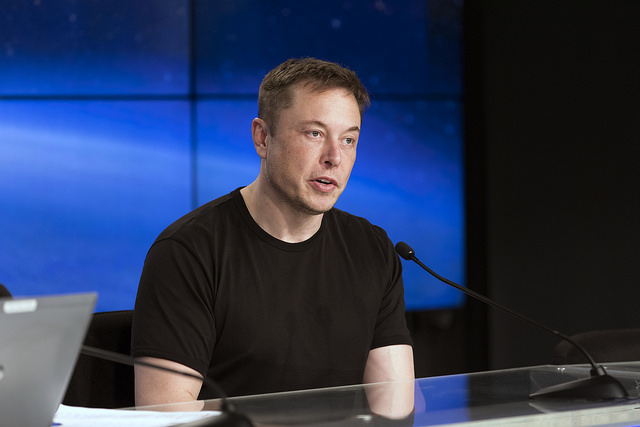FCC Chairman Backs SpaceX's Bold Internet-Satellite Plan Ahead of 1st Launch

The head of the U.S. Federal Communications Commission (FCC) has endorsed SpaceX's ambitious plan to provide internet service to folks around the world using thousands of satellites. The first prototypes of those satellites are due to launch Sunday (Feb. 18).
FCC Chairman Ajit Pai issued a statement of support for SpaceX's envisioned Starlink constellation, a huge network of spacecraft that will set up shop in low-Earth orbit.
"To bridge America's digital divide, we'll have to use innovative technologies. SpaceX's application — along with those of other satellite companies seeking licenses or access to the U.S. market for nongeostationary satellite orbit systems — involves one such innovation," Pai said in a statement Wednesday (Feb. 14). [SpaceX's 1st Falcon Heavy Rocket Test Flight in Pictures]
"Satellite technology can help reach Americans who live in rural or hard-to-serve places where fiber-optic cables and cell towers do not reach," he added. "And it can offer more competition where terrestrial internet access is already available."
In the statement, Pai also said that he has urged the other four FCC commissioners to green-light Starlink. And he noted that the FCC has already approved three other satellite-internet projects: those in development by OneWeb, Space Norway and Telesat.
SpaceX aims to get Starlink up and running soon, with initial operations starting by 2020. And the company will make big strides toward that goal on Sunday, with the launch of the first two Starlink prototype satellites. These craft will ride as secondary payloads aboard a Falcon 9 rocket whose main task is lofting the Paz satellite for Spanish company Hisdesat. Paz will collect radar imagery of Earth, for a variety of purposes.
Sunday's liftoff is scheduled to take place from Vandenberg Air Force Base in California at 9:16 a.m. EDT (1416 GMT; 6:16 a.m. local California time).You can watch the event live here at Space.com, courtesy of SpaceX, or directly via the company.
Breaking space news, the latest updates on rocket launches, skywatching events and more!
SpaceX initially planned to launch the Paz mission on Saturday (Feb. 17). But the company announced a 24-hour delay this week to allow extra time for prelaunch systems checks.
Like many other recent Falcon 9 launches, Sunday's will use a pre-flown first stage. The company lands and reflies these boosters regularly now, as part of its effort to develop and implement cost-slashing reusable-rocket technology.
SpaceX founder and CEO Elon Musk announced the satellite-internet project three years ago during a speech in Seattle. He has said that profits from the venture will go toward SpaceX's long-term, overarching goal: helping establish a sustainable human settlement on Mars.
Editor's note: This story was updated Friday, Feb. 16, to reflect the 24-hour launch delay announced by SpaceX after an early version of this piece was posted.
Follow Mike Wall on Twitter @michaeldwall and Google+. Follow us @Spacedotcom, Facebook or Google+. Originally published on Space.com.

Michael Wall is a Senior Space Writer with Space.com and joined the team in 2010. He primarily covers exoplanets, spaceflight and military space, but has been known to dabble in the space art beat. His book about the search for alien life, "Out There," was published on Nov. 13, 2018. Before becoming a science writer, Michael worked as a herpetologist and wildlife biologist. He has a Ph.D. in evolutionary biology from the University of Sydney, Australia, a bachelor's degree from the University of Arizona, and a graduate certificate in science writing from the University of California, Santa Cruz. To find out what his latest project is, you can follow Michael on Twitter.
